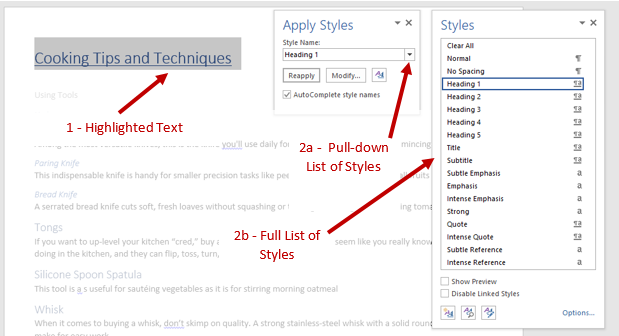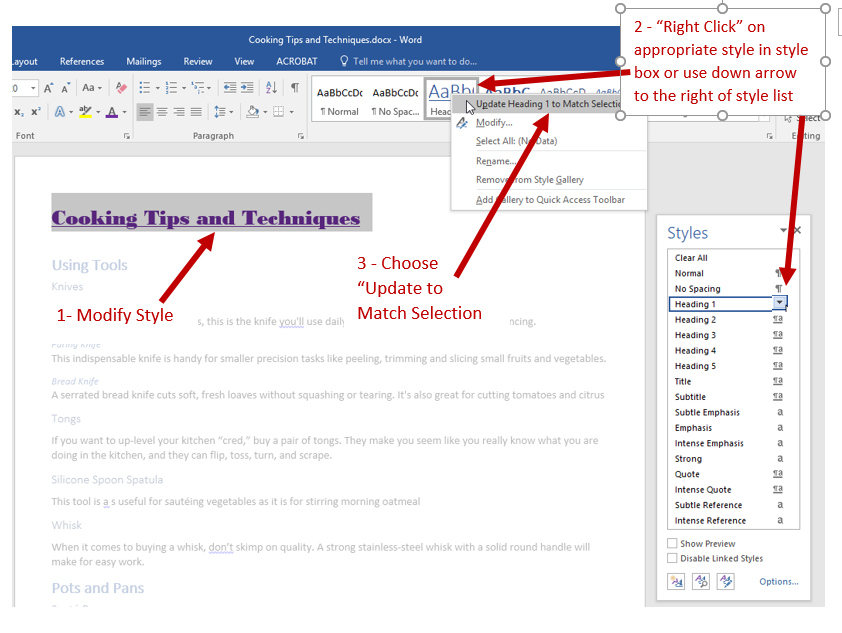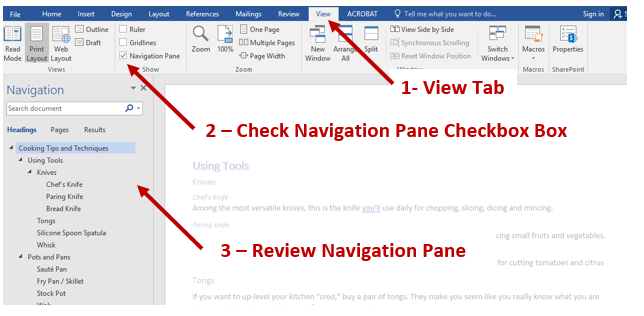Headings in Microsoft Word
Headings are important to help users understand the structure of your document and the information that it contains. Using the built in Styles function of Word not only helps to create a consistent visual appearance but will also allow screen reader users to easily navigate and understand your document.
Reminders:
- Avoid the “Title” style – always start your document with “Heading 1” (H1).
- Nest headings in proper order – e.g. H3s should be nested under H2 and H4s under H3. H4 should not be nested directly under H2.
Creating Headings
Method One – Using the Ribbon
- Choose the Home tab across the top of the screen
- Highlight the text you want to make into a heading (tip: you can double-click to highlight a full block of text)
- In the Styles Box, choose the appropriate Heading – this will automatically change the look of the highlighted text to that style
- If the style you want is not showing in the box, click on the down arrow in the bottom right for more options

Method Two – Using Keyboard Shortcuts
- Highlight the text you want to make into a heading (tip: you can double-click to highlight a full block of text)
- Use keyboard shortcut to open a Style Pane – you have two options:
- The Apply Styles pane has a pull-down list of styles: Ctrl-Shift-S
- The Styles Pane shows the full list of styles: Alt-Ctrl-Shift-S
- Choose the appropriate Heading – this will automatically change the look of the highlighted text to that style

Modifying Headings
Once your headings are in place, it is very easy to change the look of your styles across the document.
- Highlight a heading and change the look using color, font, size, bold, italic etc…
- While the selection is highlighted:
- “Right click” on the appropriate heading in the Style box on the Home tab ribbon or
- Use the pull-down to the right of the appropriate heading in the styles pane (Alt-Ctrl-Shift-S)
- This will open a new dialog box – Select “Update to Match Selection” (the first option)
- All headings of the selected type will now look like the one that you modified

Check Your Headings
There is a quick and easy way to check that all of your headings are identified and correctly nested – you can use the built in Navigation Pane tool. When opened, it creates an outline of your document where you can easily see the headings and their hierarchy.
- Choose the VIew tab across the top of the screen
- Check the Navigation Pane box in the Show section of the ribbon
- The Navigation Pane will open to the left of the document

